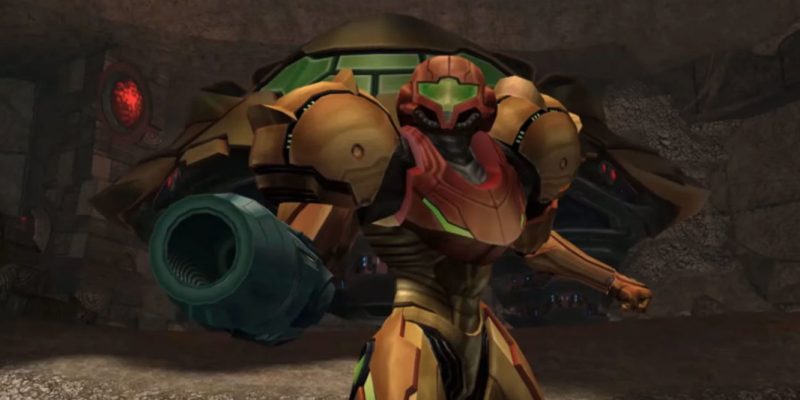“There are always shortcuts you can take. The trick is to not take them. Don’t cheat.” — Andy O’Neil, 1972 – 2019
I only spoke to Andy O’Neil — founder of Bluepoint Games, the Retro Studios engineer behind Metroid Prime’s delightful morphball physics, and a remarkable creator in his own right — once on the phone back in 2012. We were discussing HD remasters. At the time, rejiggering older games made for standard definition output to display on widescreen televisions at crystalline resolutions was a new and exciting process; there simply weren’t that many of them yet. What struck me most about O’Neil, though, was not his remarkable expertise, his obvious passion for his work, or even his unique perspective on how video games should be preserved. It was his immediate openness, his kindness, and his overwhelming enthusiasm.
I talked about that interview for weeks after it happened. When I saw today that he had passed away at the age of 47, the memory immediately came back to me. That’s the kind of impact he had.
O’Neil worked in the video game industry for just over 20 years. After serving as the lead engineer with Nintendo and Retro Studios on Metroid Prime and Metroid Prime 2: Echoes, he founded Bluepoint Games. The studio carved out a niche for itself by making higher quality remaster collections than anyone else. Bluepoint Games’ exhaustively prepared compilations of legendary PlayStation 2 games like Metal Gear Solid HD Collection and The Ico & Shadow of the Colossus Collection that remain unusual to this day because of their craft. O’Neil’s team worked directly with creators like Fumito Ueda on improving even miniscule pieces of art in the games to make sure everything felt just right.
Their method was uncommon and labor intensive. “We don’t use archive data,” O’Neil told me. “We take retail discs of the game and reverse engineer them. That way we can be 100 percent sure we have all the final retail data and that it matches up. That takes a lot time. Then to get it working, we basically have to go in and change every single piece of data. We get the code and we use that to build a PC version of the game. It’s not something meant to ship, so a lot of things don’t work. It doesn’t have sound for example. The engine though is the same, the data layout is the same, so we get that working first. If you have a lot of stuff coming through the VU assembler [with a PS2 game], you need to do a lot of super detailed work to convert it all. We don’t emulate any of this stuff, we hand convert it.”
He told me all of this in an almost giddy rush when we spoke. He wasn’t just proud of the work; he was excited by it in the same way that a fan would be from the outside. Everything that Bluepoint worked on after we had that conversation, like the wonderful Uncharted: The Nathan Drake Collection and Gravity Rush Remastered, was redolent with that care and love.
I’ve met hundreds of people doing this work over the past decade. While I’ve occasionally interacted with someone who is genuinely toxic, the majority of people I have met are good, hard-working people who believe in what they’re doing and love the medium they get to contribute to. So many of those conversations have faded in my memory, though. They’re just gone. They were working, I was working; we were doing our jobs by discussing these games and producing a story to share with people. It’s natural for things to fade.
I have been lucky enough, however, to have met people that shine in the course of this work, people who by the simple dint of being themselves make the world a better place to live in. Andy O’Neil was one of them, and our world is dimmed with his passing.
